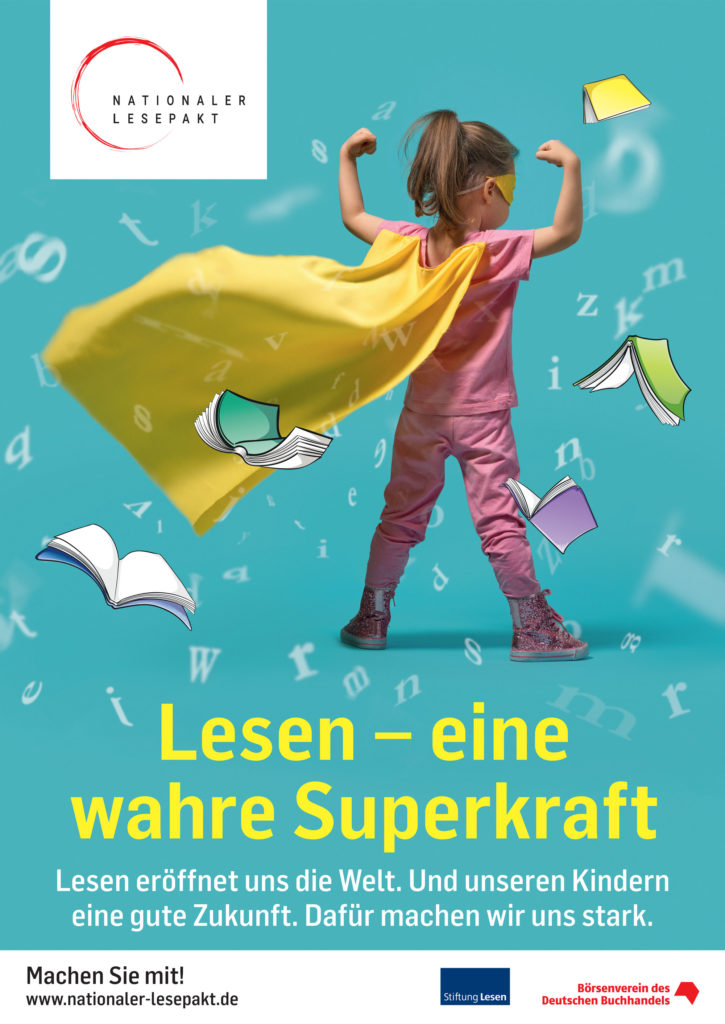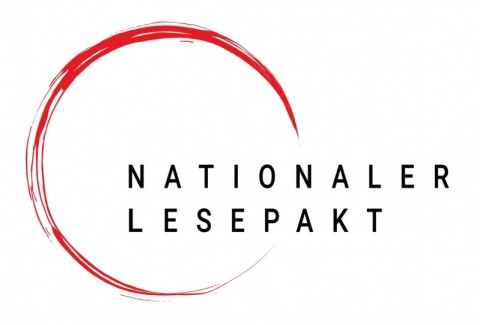Michiel Kolman assumed the Chairmanship of the Committee in January, 2021, and has an ambitious plan of broadening the committee role in different focus areas. Together with the brilliant members of the literacy subgroup we are planning to build a strong network of literacy organizations, to whom IPA will be a partner, and promote literacy on the international level, develop our own projects to stimulate reading all around the globe, cover health literacy and digital literacy issues. Besides this, we have decided to prepare articles and interviews concerning the latest inspirational literacy initiatives of different countries for the IPA blog. We hope these blogs will become the motivation for many of our colleagues to collect plenty of ideas and develop similar or absolutely unique literacy projects in their countries as well.
On March 3, 2021, at the National Reading Summit, Börsenverein des Deutschen Buchhandels and Stiftung Lesen together with around 150 partners, launched a joint initiative – the National Reading Pact:
Promoted under the motto – “Reading – a Real Superpower” the website reads: “Anyone can read? Not even close. National and international educational studies clearly and repeatedly show that reading is difficult for many children and young people. At the end of the fourth grade, almost 20 percent of primary school children can understand individual words, but not longer sentences or even texts. As adolescents, they feel the consequences in secondary lessons and when choosing a career. They lose touch and often leave school with no or only an inadequate diploma. What’s more, the effects extend far beyond the lives of these young people. When they become parents, they often pass on their reading difficulties to the next generation.”
This issue may affect other countries so I was delighted to have the opportunity to interview Jessica Sänger, legal Counsel and Director of European & International Affairs, Börsenverein des Deutschen Buchhandels, also a chair of IPA Copyright committee, to learn more about Germany’s National Reading Pact and how Germany is planning to work on “political and social awakening”.
Gvantsa Jobava (GJ): Jessica, please tell us more. What is the new Pact about?
Jessica Sänger (JS): The National Reading Pact aims to stimulate improvements in reading promotion and literacy work in Germany. To achieve this, it is important to bring together a broad coalition of stakeholders from politics, society and literacy campaigns. There are already many excellent and committed projects in place, many of them driven by volunteers and originating in local communities. What we lack is a targeted, comprehensive nationwide strategy.
(GJ): What was your motivation to create such a Pact? Why did you decide to take action and what was the background to that decision?
JS: Börsenverein has always been very active in promoting reading and literacy. In 2016, a study on reading skills among elementary school pupils (known as the IGLU study) revealed that one fifth of all 10-year-olds in Germany lacked the ability to read and comprehend texts. In response to these dramatic findings, the author Kirsten Boie launched a petition under the slogan “every child must learn to read”. Börsenverein was among the first to support this campaign and presented the list of signatories to Federal Minister for Education Anja Karliczek in 2018. Motivated by the worrying evidence, we joined forces with Stiftung Lesen (German Reading Foundation) to find ways to make a lasting difference. Another concern is that we need to overcome social inequalities in access to education and reading.
(GJ): What are your main goals?
JS: As mentioned before, there are already many promising initiatives run by a variety of stakeholders. But we need an overall approach that can bring the existing offers under a nationwide strategy. We need a clear plan for literacy and reading promotion in Germany that can bring in policy-makers in order to achieve lasting results. This requires clearly defined goals and a well-structured approach based upon sound academic expertise.

(GJ): You mention the lack of a comprehensive nationwide strategy. What is the role of the state organizations in your initiative?
JS: We will not be able to improve literacy levels and reading skills without support from policy-makers. On the one hand, the many organisations working in this field, often supported by volunteers, need financial support in order to be able to pursue their missions in a sustainable manner. On the other hand, a long-term strategy will only be successful if politicians at state and federal level collaborate and put in place the necessary policy framework.
(GJ): And who are the 150 partners? How was it possible to build such a broad community around your new initiative?
JS: Jointly with the German Reading Foundation, we have indeed been able to bring together a broad coalition of supporters from various parts of society, including business, sport, media and politics. This shows the huge relevance of the question of literacy: deficits in reading skills are felt by individuals and businesses across society.
(GJ): Besides the Pact, you had already planned the campaign “Reading – a Real Superpower”, which will accompany the National Reading Pact. What is the idea behind this campaign?
JS: The campaign aims to increase visibility for the initiative as well as literacy and reading in general. All our partners are encouraged to share the visuals through their networks. We are distributing the poster to bookshops and it is also available for download. In addition, we are planning to place ads in media with high nationwide circulation. We want to highlight how reading really is a life-changing superpower. Reading is not only fun, but it allows us to actively participate in society. Literacy is essential to democratic societies because it is fundamental to the individual’s education, independence and ability to form informed opinions.
(GJ): Are you planning to conduct a study of reading habits to monitor the impact and results of this initiative?
JS: Surveys like the IGLU study are conducted at regular intervals by the relevant institutions. Of course we aim to improve reading skills for the long term. But we still have a long way to go.
Author’s comment:
Please note that we are open to receive the information about the new literacy initiatives, unique projects from different countries’ literacy organizations to highlight them in our future blogs. Please contact us on the following address: gohpublishingprogram@gpba.ge

